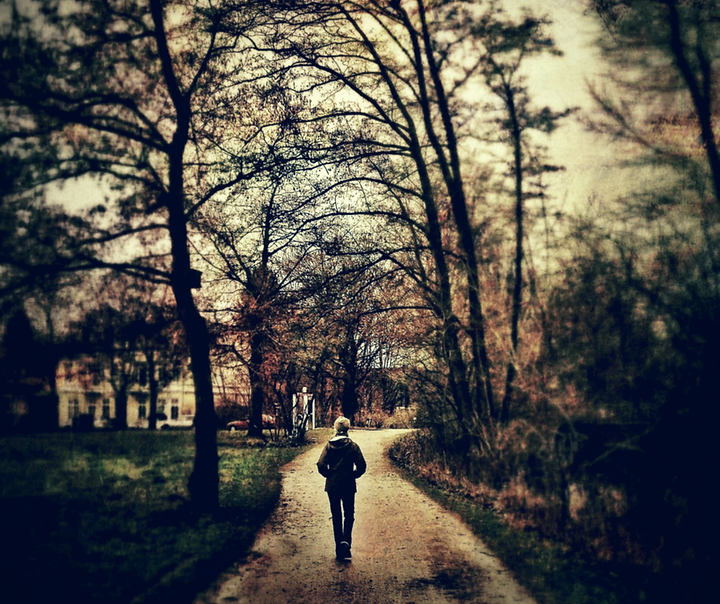Sonata was walking home from her part-time job at the coffee shop.
Two thirty should be a reasonably safe time of day, but she was snatched from the sidewalk and dragged into the alley just two blocks from the coffee shop. Stripped. Beaten. And raped—by each of her attackers. When they were finished, they dropped her beside a dumpster and left.
She lay motionless, naked, covered only in filth and shame.
Unable to move, she prayed that God would take her or send someone to help.
The sounds of footsteps rumbled over the asphalt as her head lay against it. Her pulse quickened. Fear mixed with hope as the footsteps grew louder. They paused, resumed, then faded away.
Her racing heart settled as fear and hope waned. Despite her pain, she tried to move, but the pain was too much, and she collapsed—and waited—and prayed.
Sometime later, footsteps neared the alley. By the sounds, she guessed a mother and her daughters or some girlfriends walking home from work. The footsteps stopped.
She opened her eyes. Unable to lift her head, she struggled to focus but saw three sets of legs. Respectable heels. Business suits. And one dress. Her heart sank as one of the women said, “So sad, someone should do something.”
And their heels clicked the pavement again, and they were gone.
Shadows grew longer. The alley grew colder. Thirst and hunger joined her pain. She tried to move again and passed out.
Footsteps drawing close awakened her to twilight and a man standing over her holding his phone to his ear.
She presumed he was calling 911, but the voice through the phone was loud. “You don’t know what you’re getting into. The media gets one shot of you anywhere near her—it will be a stain on your career.”
Footsteps started again and trailed off.
The cold of night almost matched the cold of the world that discarded her. She glanced at the stars one last time then closed her eyes and waited to die.
Suddenly, she felt warm and alive. She felt no pain and wondered if she had died. The monitors beeping and shoes shuffling told her she was alive and in the ER.
Seven days. Three surgeries. Four units of blood. And a lot of morphine.
And she was almost ready to be released when a man she despised walked in. She’d thought of him as disgusting, unsuitable, un-respectable. No one she would associate with. Loud. Vulgar. Outspoken. And the owner of a strip club.
But unlike the good people who passed her by, this aging man who had exhausted the pleasures of life for his whole, very public life, was now giving back.
The progressives had stopped to recognize her distress and agree that the government or someone should do something. Their virtue remained intact because they recognized the problem, saw the victim of our rape culture and signaled their disdain toward the oppressive behavior of men and the fact that government doesn’t do enough to help.
The conservative stopped and really wanted to help, but he was a God-fearing man who also feared his wife and feared tainting his reputation. He could help her, but his efforts might be misconstrued and used against him. He even feared being implicated in the crime that landed her there in the first place. He would’ve called 911, but his name would be associated with the call, and reporters would surely come knocking on his door, connecting him with this presumed prostitute.
But his virtue remained intact. He’d recognized her as the victim of moral decay and failed progressive policies, and he offered warm thoughts and a sincere prayer. Then he moved on.
The pragmatist stopped. He removed his coat and covered her, tried to wake her to give her a drink. She was breathing—barely. Faint but steady pulse. He sat beside her with his limousine nearby, and he called 911.
While the paramedics worked diligently, he scoured the alley and found her purse. He grasped her hand and used her finger to unlock her phone. He called Mom and Work to let them know she had been attacked but she was okay. He gave the paramedics his card. “Give this to her. Have her call me when she’s awake—if she needs anything.” As the paramedic readied to move her, the man grabbed the paramedic’s arm and gave him another card. “Give this one to whoever does the billing. Whatever insurance doesn’t pay, or if she doesn’t have insurance, it’s on me.”
He had no sense of virtue. No sense of responsibility or lack of responsibility. No pristine reputation to cling to. But he had a tremendous sense for getting things done.
He even had the disgusting, fleeting thought of what it could’ve been like to have met her under other circumstances—a glaring moral flaw.
Despite his overt flaws, he more than helped her. He saved her life.
Three stopped.
Virtue.
Virtue.
And No Virtue.
Who is your neighbor?
What are you doing to save her?

